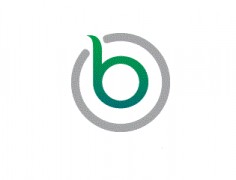Getting a job is always a challenge, but it is even more important when the economy is doing as poorly as it is now. Knowing how to write a resume can make the difference between landing a decent job and remaining unemployed. A lot of people don’t understand the purpose of a resume, and that causes them to write resumes that are ineffective. While that’s not good for them, it actually can help you to stand out from the crowd and get the job you want, regardless of how bad the economy may be.
As you write your resume, it’s important to remember that you want to portray your experience, knowledge, and skills in a positive light that appeals to the employer. You are not writing an autobiography that goes on for page after page after page, but rather a short document that helps a potential employer get to know you. The purpose of your resume is to move one step further in the hiring process–typically an interview.
Knowing how to write a resume is all about getting your resume seen and then set aside as a job candidate. You should write your resume in the standard format, and do rely on gimmicks to get seen. While this may work on a few employers, it tends to backfire more often than not. The one exception to this is if you are applying for a job that is highly creative and expects to see an interesting resume. To put it another way, your resume needs to attract attention based on its merits, not based on its packaging.
Your resume should have sections about yourself, your education, work history, skills, and experience. Again, it is very important that you frame everything you mention in a way that makes it look beneficial to the employer. A resume is, in effect, a sales letter trying to sell a company an employee.
When writing the section about yourself, keep it short and relevant. You should not reveal too much personal information, taking special care to avoid any information the employer is not allowed to ask you about; such as race, religion, or any other sensitive topics.
Work history should cover the bulk of your working life. You may wish to be somewhat selective in how you present your earliest jobs if they were short-lived or weren’t held for a long time. Employers understand that people change, so a job you got fired from when you were a teenager will have less meaning to them than a job you quit two years ago. Be ready to explain any big gaps in your employment history.
Perhaps the hardest part of how to write a resume is showcasing your skills. The problem for most people is only being able to think of one or two things they are good at. The secret here is to, again, think about what the employer wants. You will surely have several job skills, but you also have skills from your hobbies, volunteer work, and life in general. Once you have a list of skills, it’s a simple matter of listing the ones that are relevant to the position you are applying for.
